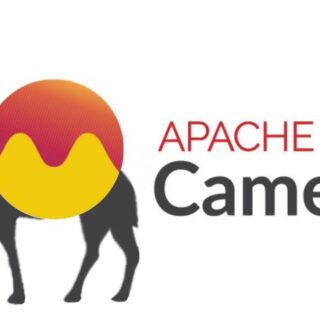Do vloggers qualify to bring a class action lawsuit against the music industry?
Disclaimer: I am not an attorney or expert of the law, if you are a victim of this crime please consult an attorney. If you are not ready to consult an attorney please blog your story and share it on social media to help the other victims of this crime. This is not about YouTube itself, YouTube is also a victim of this crime. This is about a crime being committed by the music industry against vloggers everywhere. This blog is provided for informational purposes only and is not meant to present an intent to file a lawsuit, but instead to demonstrate the grounds for such a lawsuit and how this crime is hurting vloggers and YouTube. I am writing this blog as a response to the seemingly illegal fraudulent claims my wife has received from the music industry due to her vlog at www.youtube.com/diaritoch.
Every day there are numerous legally frivolous complaints filed against vloggers on YouTube. As far as I know, nearly everyone across the globe who has posted video’s on YouTube that were recording in public has become a victim of the music industry. Every man, woman, and child who is capable of recording a video and posting it to YouTube is a potential target of this heinous violation of the law.
The damages of individual vloggers is so small that you may not recognize that the music industry is stealing from you. Every single video posted has some potential for earnings, both in terms of branding and as a potential advertising outlet. Vloggers may feel pressured into providing free advertising for the music industry which is videobombing us by crediting them for songs which were neither intentionally included in the video, nor were a substantial part of the video. I’m not talking about the vloggers who intentionally edit their video’s with background music, what I’m talking about is the videos where music is playing in a public place and finds it’s way onto your video.
When songs videobomb your YouTube video’s it is a clear-cut case of fair use. Not only would it be impossible for the music industry to prove that the presence of their song in your video cost them money, it is actually free advertising for them and they are making money from it. If the issue ended there there wouldn’t be any legal violation but the greed of the music industry takes it a step further. They are filing frivolous complaints against vloggers, potentially without meeting the requirements of Rule 11 of the Federal Rules of Civil Procedure and similar state rules which require that an attorney perform a due diligence investigation concerning the factual basis for any claim or defense.
Do we qualify for class action status?
To qualify for class action status we would need to meet Rules 23(a) and (b) of the Federal Rules of Civil Procedure and prove through rigorous investigation that these requirements are met.
23(a)(1) the class is so numerous that joinder of class members is impracticable (numerosity)
This one is a no-brainer. Everyone capable of recording a video and posting it to YouTube is a potential member of this class. Proving this is easy since the music industry has filed these frivolous complaints against everyone, including minors with no knowledge of copyright law. A subpoena to google for contact information for anyone who has published more than 10 videos online, and the contact information for anyone who has received a copyright claim against their videos will show very clearly how numerous this class really is. Nearly everyone is a potential victim of this crime.
23(a)(2) there are questions of law or fact common to the class (commonality)
The common law here that is being violated here is the lack of due diligent investigation before filing copyright infringement claims as these claims are invalidated by fair use laws. How do we prove commonality? The answer is simple, just ask YouTube vloggers if they have been a victim of these frivolous complaints where the music playing in the background was neither intentionally added and also poll consumers to determine how many of them watch vlogs to hear their favorite music instead of paying for it. The number of people who prefer to watch music from vlogs that have some stranger talking over the content would probably be so small that if you surveyed 100 people in a dozen random public places it is unlikely you would find a single person that qualifies. Fair use covers both situations where the claimant does not face any loss from the use of their content, and from the case where the music is an insubstantial part of the media. If there was an easy way to remove the songs from the video without reducing the quality of the actual content many vloggers, including myself, would gladly do so. Unfortunately no such easy-to-use technology exists in the public sector. This legal foundation is common to all vloggers so proving commonality is simply a matter of documentation.
23(a)(3) the claims or defenses of the class representatives are typical of those of the class (typicality)
Proving this one is trivial. YouTube is very popular and most vloggers who know how to post their content to YouTube are posting their content to YouTube. Therefore statistical analysis of the situation will clearly define that most vloggers are a victim of this crime.
23(a)(4) the class representatives will fairly and adequately protect the interests of the class (adequacy).
In this case it is simply a matter of finding representatives that have the resources to defend vloggers from this situation. Every vlogger is being victimized in the same way by these laws and the general interest is for the music industry to cease and desist this illegal activity. A signed affidavit from each of the representatives, and potential representatives would show quite clearly that we have a single interest in stopping this crime so we can live our lives and share our experiences without the constant frivolous legal complaints from the music industry.
23(b)(1) that prosecution of separate actions risks either inconsistent adjudications which would establish incompatible standards of conduct for the defendant or would as a practical matter be dispositive of the interests of others;
It should be possible to prove both conditions of this. The first condition of this is already met since states have their own laws as to what constitutes fair use. Bringing these cases to lower courts which bring inconsistent verdicts would also prove this. Every jurisdiction has potential bloggers and if you ask the public what should be done to stop the music industry from committing this crime the public will likely come up with a wide range of possible solutions. The second condition is also met since every mother, teacher, and public servant that vloggs has a duty to provide services, services that tax payers and corporations pay for in both paid maternity leave and property taxes. These services would be interrupted if each of them were required to file individual lawsuits.
23(b)(2) that defendants have acted or refused to act on grounds generally applicable to the class
How do we prove that the defendants have filed these complaints against vloggers? We could ask random YouTube vloggers for screenshots of the fraudulent claims they receive from the music industry. A random sample is one way to prove that this is generally applicable to vloggers.
23(b)(3) that there are common questions of law or fact that predominate over any individual class member’s questions and that a class action is superior to other methods of adjudication.
Believe it or not YouTube is helping vloggers meet this requirement. Every claim dispute filed by vloggers requires a short explanation as to why the claim qualifies as fair use. Proving that most bloggers don’t understand how fair use applies to their vloggs could be a matter of reviewing these messages submitted to youtube. The music industry, and bloggers, may believe they have the right to file these frivilous claims without reviewing if the video’s qualify as fair use. This is a case that would best be settled in the Supreme Court since local courts do not have the resources to handle individual complaints from every vlogger. If we could prove that there are subtle differences in how songs videobomb our youtube posts than that should prove that only the supreme court has the jurisdiction to settle the matter in a way that covers the best interest of vloggers without violating the rights of the copyright holders. The music industry is typically filing their complaints within 24 hours of a video being posted which is the time when most video’s are the most popular. Because of this vloggers and youtube are likely loosing significant earning potential from these fraudulent claims.
Please help stop this crime against vloggers. We each have the right to share our lives and earn the full range of rewards from sharing our vlogs without the constant fraudulent complaints from the music industry. Share your story and/or consult an attorny, individually we cannot stop this crime but as a group the internet community can expose, and hopefully put an end to, this criminal activity by the music industry.
Please use twitter hashtags: #MusicIndustryMuggingVloggers and #youtubecopyrightnonsense
Known Possible Defendants:
Universal Music Group (UMG)
Warner Music Group (WMG)
Any other copyright holder filing such frivolous complaints on YouTube.

